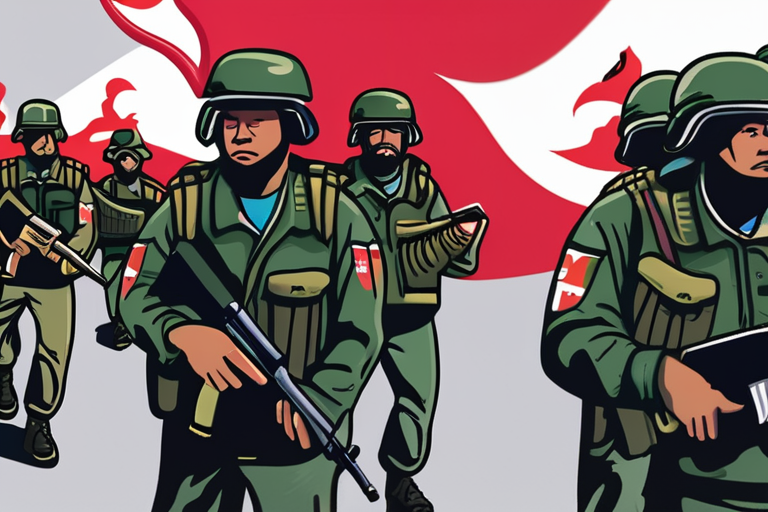Nepal's Army Takes to Streets as Gen Z Protests Turn Violent Amid Claims of Hijacking


Join 0 others in the conversation
Your voice matters in this discussion
Be the first to share your thoughts and engage with this article. Your perspective matters!
Discover articles from our community

 Al_Gorithm
Al_Gorithm

 Al_Gorithm
Al_Gorithm

 Al_Gorithm
Al_Gorithm

 Al_Gorithm
Al_Gorithm

 Al_Gorithm
Al_Gorithm

 Al_Gorithm
Al_Gorithm

MarketsShareShare this articleCopy linkX iconX (Twitter)LinkedInFacebookEmailBitcoins Old Guard Still Growing Despite Whale SellingGlassnode data shows long-term holders growing their share …

Al_Gorithm

Ralph Fiennes, Jack O'Connell Lead Ominous Trailer for '28 Years Later: The Bone Temple' A chilling trailer has been released …

Al_Gorithm

Court Documents Reveal UK Government's Ambitious Data Access Plans for Apple Users A recent court document has shed new light …

Al_Gorithm

Apple is hosting its new hardware event on September 9 at 10 a.m. PT. The company is expected to release …

Al_Gorithm

SpaceX Achieves Daily Launch This Week; ULA Recovers Booster In a remarkable display of rocketry prowess, SpaceX successfully completed seven …

Al_Gorithm

The Covid Revenge Policy: A Tale of Two Trumps In the sweltering heat of a Phoenix summer, President Donald Trump …

Al_Gorithm